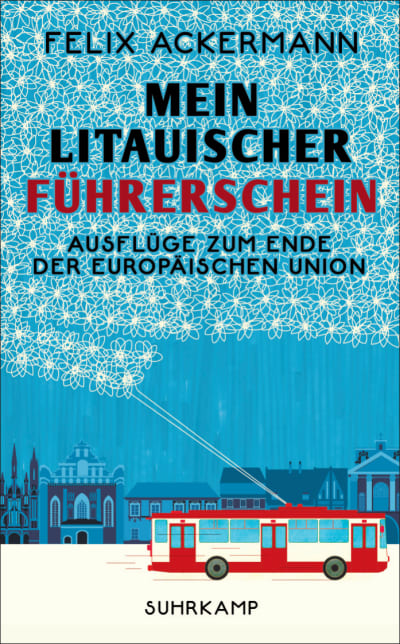Lithuania (Leidykla Lapas), Belarus (Logvinau)
What is holding Europe together? What have Lithuanians done over the last quarter of a century with their recently won freedom? And how does the European Union function at the furthest reaches of its eastern borders? Rather than examining these questions theoretically, in 2011 Felix Ackermann left Berlin with his family in order to become a guest scholar at a Belarusian university in exile in the Lithuanian capital of Vilnius. There his children learnt Lithuanian and became good little...
What is holding Europe together? What have Lithuanians done over the last quarter of a century with their recently won freedom? And how does the European Union function at the furthest reaches of its eastern borders? Rather than examining these questions theoretically, in 2011 Felix Ackermann left Berlin with his family in order to become a guest scholar at a Belarusian university in exile in the Lithuanian capital of Vilnius. There his children learnt Lithuanian and became good little patriots. His wife gave birth to a daughter who was immediately given a Lithuanian identification number. And Felix Ackermann finally managed to get his driving license in a little town called Utena.
Its tone, sense of humour and liveliness recalling Steffen Möllers’ Viva Polonia, the historian of eastern Europe and journalist Felix Ackermann writes about what it’s like to live in a country in which post-Soviet behaviours, national self-discovery and dreams of Europe coexist. And that through a negative perception of Middle Eastern refugees on the one hand and the fear of an aggressively more powerful Russia on the other is being challenged in completely new ways.
Persons
Felix Ackermann
Felix Ackermann, born in 1978, grew up in Berlin and obtained his doctorate in Frankfurt (Oder) under Karl Schlögel in 2008 with a thesis on the city of Grodno, now in Belarus. He taught at the European Humanities University in Vilnius between 2011 and 2016. He is currently conducting research on the history of the prison system in the Polish-Lithuanian Commonwealth at the German Historical Institute Warsaw.
Felix Ackermann, born in 1978, grew up in Berlin and obtained his doctorate in Frankfurt (Oder) under Karl Schlögel in 2008 with a thesis on...


